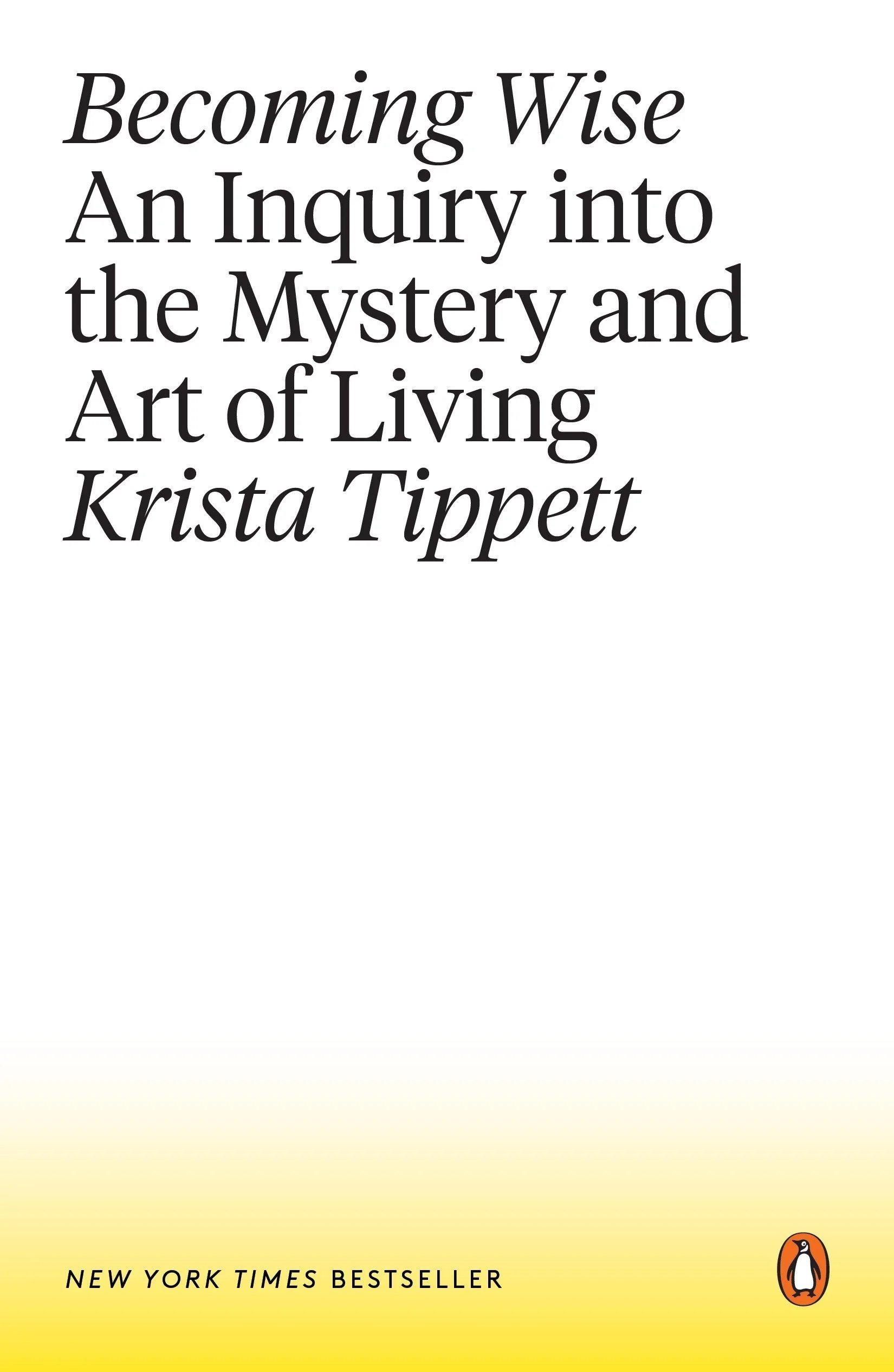Becoming Wise
During a visit to West Michigan last month, we paid a visit to Books & Mortar in the East Hills neighborhood of Grand Rapids. I usually live by the credo that it’s practically a crime not to buy something when you visit an indie bookstore. IYKYK.
On this particular visit I was drawn to a paperback copy of Krista Tippett’s 2016 book Becoming Wise: An Inquiry Into the Mystery and Art of Living (Penguin). Anyone who has listened to the On Being podcast and public radio show knows (and—correct me if I’m wrong—loves) Tippett’s soothing voice and the calm, spacious nature of the conversations that unfold. This book is an extension of those conversations, and reading it feels a lot like listening to the show.
A word about what this book is not. A work of systematic theology? Nope. An airtight apologetic for orthodox Christian faith? Not that either (not directly, anyway). No, this book is something different: an invitation to a posture, to a way of being that can shape the nature of our faith in wonderful—and yes, faithful—ways.
The granddaughter of a preacher and a graduate of Yale Divinity School, Tippett is candid about the present nature of her own faith, such as it is: “The longer I live, the less comprehensible I find the notion of a God who listens, yields, takes account of our struggles.” She continues:
And as uncertain as I grow about some of the fundaments of faith, in a way that would have alarmed my grandfather, I grow if anything more richly rooted in one of the most inexplicable things he taught me: God is love. I understand the contradiction here. I am unable to state, with conviction, that God exists in any way that sentence would have made sense to me in childhood or makes sense to me now intellectually. I have my eyes wide open to horrors that unfold in my city, and halfway across the world, in any given moment. But I apprehend—with a knowledge that is as much visceral as cognitive—that God is love. That somehow the possibility of care that can transform us—love muscular and resilient—is an echo of a reality behind reality, embedded in the creative force that gives us life.
That’s how Tippett describes her own spiritual situation, the vantage point from which she surveys the world. And it may not seem to you or to me to be solid enough ground. Even so, the people she invites onto the show—the people who populate these pages—all come, by and large, with their feet firmly planted somewhere. Whether it’s the former chief rabbi of the United Kingdom, or an activist Catholic nun, or a theoretical physicist who can’t get over the mysterious “elegance” of string theory, each guest brings his or her own faith commitments to the table, and each is given the freedom to speak on the basis of those commitments.
One of the first On Being conversations I can remember listening to was with Richard Mouw. As you probably know by now, his work has come to mean a lot to me over the years, though at the time of that 2010 conversation I barely knew his name. On the show, Tippett invited Mouw to offer an “evangelical view” on the difficult task of restoring political civility in our fractured society. And he did so clearly, faithfully, and humbly, all with a joyful sense of humor. Here was the president of an evangelical seminary, on NPR, speaking at length about how his particular faith and theology shape a vision for mutual flourishing in society. It was an intoxicating conversation to listen in on as a twenty-something grappling with the complexities of the world in which I found myself at the time. It was a conversation full of so many thrilling possibilities for faithfulness, and citizenship, and neighborliness. It felt brand new to me.
In all the subsequent On Being conversations I’ve listened to over the years, I always appreciate that Tippett insists on giving breathing room, just as she did with Mouw. Her guests (and listeners!) can afford to take deep breaths. They know they won’t be interrupted or berated or backed into a corner. There are no gotchas looming ahead. Just humane curiosity and really, really good questions. And then plenty of space to inhabit them.
Reading this book, and listening to the show, I’m challenged to become a better listener myself, a better asker of questions, a more attentive friend. And I’m reminded that curiosity about the world—and about the ways others interpret its mysteries—is in fact a virtue, not a vice.
“The earth is the LORD's and the fullness thereof,” says the psalmist, “the world and those who dwell therein.” And then there’s this, from John’s first letter: “There is no fear in love; but perfect love casts out fear.”
Let’s get in the habit of taking deep breaths. With our feet our firmly planted in Christian orthodoxy—as understood and practiced across space and time—we of all people can afford to be inquisitive about other ways of seeing the world. Who knows, we may still have some things to learn. We might even make a friend. That sounds pretty good to me.
